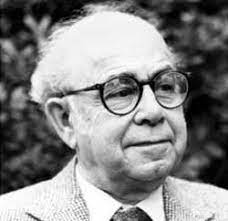Almond, Gabriel

Bio: (1911-2002) American political scientist. Almond received his doctorate in political science in 1938 from the University of Chicago. After a short teaching career in 1942, he began working for the US Army as an analyst. In 1947, he returned to his academic career and taught at Yale, Princeton, and Stanford universities until 1993. Almond was president of the American Political Science Association in 1955-6. Almond expanded the field of political science by applying approaches from sociology, anthropology, and psychology in his work. Almond researched and studied foreign policy, public opinion, politics of developing countries, political culture, and religious fundamentalism, but he is best known for his systematic comparative studies of the cultural and political situation of different countries.
In his 1950 book The American People and Foreign Policy, Almond analyzed survey data to explain swings in public opinion in the USA toward international relations and affairs. Public support wavered between idealism and cynicism; isolationism and interventionism; and optimism and pessimism.
In The Appeals of Communism (1954) Almond, using data gathered from surveys and interviews, showed that the appeal of communism was different in countries where the working class had “normal” ideology, from countries where the working class was alienated from dominant ideology.
Almond develops the classification of different political systems in the article “Comparative Political Systems” (1956). He uses a Weberian and Parsons’ functionalist approach in his study of political systems. He sees the political system as a system where political action is done through the structure of interacting political roles. Almond lists the following political systems in his classification: 1) the Anglo-American, 2) the Continental European, 3) the pre-industrial, or partially industrial, political systems outside the European-American area, and 4) the totalitarian political systems.
Almond and James S. Coleman coauthored the book The Politics of the Developing Areas (1960), where they proposed a new analytical framework to be used to identify the basic institutions and processes of social change in societies.
His most famous book, which he wrote together with Sidney Verba, is The Civil Culture (1963), in which they study civil culture, political attitudes, political culture, and democracy in five countries. This was one of the first large-scale comparative cross-national studies in political science. In this book, the authors introduce the concept of political culture, which denotes a national mentality related to the political sphere, which they believe is of fundamental importance for every society. Almond and Verba distinguished three different political cultures by the level and type of political participation and people's attitudes towards politics – parochial, subject, and participant. Authors argue that a balanced combination of all of those three orientations is most conducive to functioning democracy.
In the book Crisis, Choice, and Change (1973), Almond and his coauthors introduced an integrated theory of political change combining Almond's earlier structural-functionalist approach with approaches that emphasize the agency of actors, the possibility of contingency, and the role of political leaders.
Almond, in the book A Discipline Divided (1990), appealed for a political science more open to opposing approaches, which would direct itself toward empirically testing theoretical hypotheses.
Almond was a head of the large-scale project on religious fundamentalisms, that was sponsored by the American Academy of Arts and Sciences. The results of the research were presented in the book Strong Religion: The Rise of Fundamentalisms around the World (2003). The authors show different forms of religious fundamentalism with social roots and political consequences of each.
Fields of research
Actors Aggression Alienation Authority Civil Society Community Conflict Cooperation Culture Customs, Social Democracy Dictatorship Elites Fundamentalism, Religious Ideology Individualism Institution and Organization International Relations Islam Law Leaders Liberalism Modernity and Modernization Parties, Political Politics Power, Political Psychology Public Opinion Religion Science Socialization State TraditionMain works
The American People and the Foreign Policy (1950);
The Appeals of Communism (1954);
“Comparative Political Systems”, in The Journal of Politics (1956);
Almond and James S. Coleman (eds.). The Politics of the Developing Areas (1960);
Almond and Sidney Verba. The Civic Culture: Political Attitudes and Democracy in Five Nations (1963);
Comparative Politics: a Developmental Approach (1966);
Almond, Scott C. Flanagan, and Robert J. Mundt (eds.). Crisis, Choice, and Change: Historical Studies of Political Development (1973);
Almond and G. Bingham Powell Jr. Comparative Politics: Systems, Processes, and Policy (1978);
The Civic Culture Revisited (1980);
A Discipline Divided: Schools and Sects in Political Science (1990);
Ventures in Political Science: Narratives and Reflections (2002);
Strong Religion: The Rise of Fundamentalisms around the World (2003).

